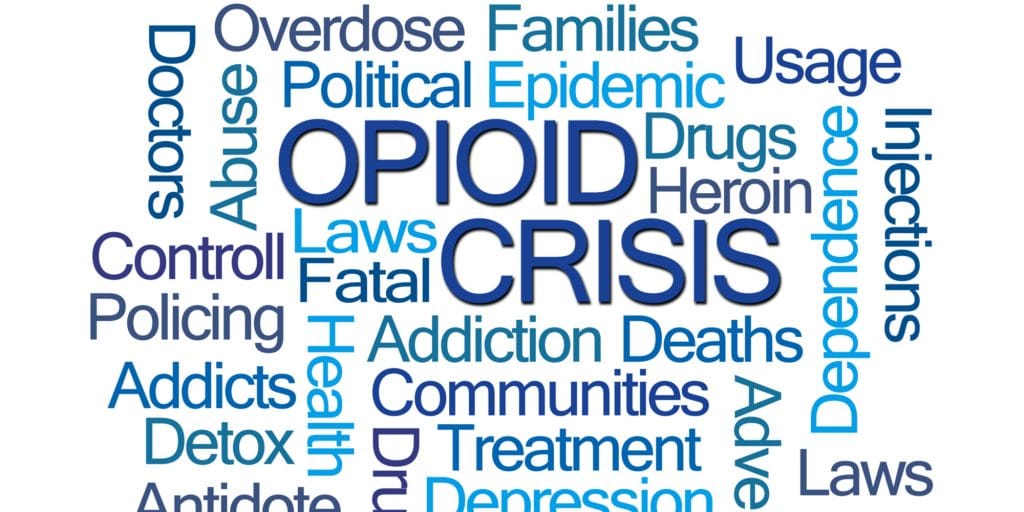
In 2020, fentanyl was found to be a cause of death in 91% of fatal overdoses in Florida. This is partially due to the fact that fentanyl is a dangerously potent opioid as well as it being routinely laced into other drugs without buyers knowing. Given the rise in deaths due to fentanyl addiction, many people are trying to figure out how to get off fentanyl without suffering dangerous fentanyl withdrawals, relapse, and other hurdles on the road to recovery.
Today, we’re sharing the proven, effective strategies to beat fentanyl dependence. If you want to quit fentanyl for good, keep reading.
Table of Contents
How to Get Off Fentanyl Without Withdrawals

If you’ve already tried to quit fentanyl cold turkey, then you probably know the issue with at-home detoxes. Fentanyl withdrawals make you sick, and it can feel so severe that people use fentanyl just to make the symptoms go away. In other cases, these withdrawals symptoms are so strong that they can kill an individual. So if quitting cold turkey at home doesn’t work, then how do you quit fentanyl?
Current research indicates that the best way to safely quit fentanyl is to enroll in a medical detox program. Through this introductory form of addiction treatment, individuals can quit fentanyl without suffering extreme withdrawal symptoms. This is achieved by 24/7 monitoring by medical staff who check vitals and patient feelings to make sure that any fentanyl withdrawals are managed through medication until they pass. In this way, you can quit fentanyl without dealing with withdrawals that jeopardize your health and your recovery.
But if you’re wondering how to get off fentanyl, it will likely take more than just detoxing. According to the National Institute on Drug Abuse, individuals who overdose on fentanyl then receive medical support and receive referral to detox facilities still face an increased risk of overdosing within one year. This indicates that simply detoxing may not be enough. In order to truly get free from opioids in the long term, it’s essential to address the underlying causes of addiction.
Staying Off Opioids for Good
Once you’ve figured out how to get off opioids initially, the next step is to stay off them. But that’s hard for many people, and one of the primary reasons is that addiction to opioids often comes as a result of a mental health issue. And without treatment that addresses both mental health and addiction, quitting opioids can be difficult to impossible.
To illustrate this concept, consider someone living with depression. Their depression symptoms might include not feeling loved by the people around them, not enjoying anything, and socially isolating themself. As a result, they might turn to drugs like fentanyl to elevate their mood and make them feel less depressed. And for a short while, this might even work.
But over time, both the depression and fentanyl dependence will worsen. As opioid addiction creates new problems in relationships and at work, depression symptoms will get worse. And once depression symptoms become more severe, it gets easier to rely on fentanyl to deal with those issues. In this way, these co-occurring disorders make each other’s symptoms even more severe.
Eventually, this cycle will lead the individual to wondering how to get off fentanyl. They may even attend detoxification and rehabilitation at a conventional rehab center. But sadly, conventional treatment often fails to treat co-occurring disorders. Since addiction treatment does not address mental health concerns, there may still be a serious issue when the individual leaves treatment. This problem can lead to relapse once mental illness symptoms start to reappear after treatment.
So if traditional rehabs don’t always treat the underlying cause of addiction, what will?
Florida Dual Diagnosis Care for Fentanyl

Dual diagnosis programs are specially designed to address both addiction and mental health issues. By combining cutting-edge addiction treatment options with evidence-based mental health therapies, this inpatient program can simultaneously address both addiction and mental illness. By following this comprehensive treatment method, you can quit fentanyl in the long term without fear of relapse due to untreated issues.
Dual diagnosis care comes with an individualized treatment program, which will be made up of proven therapeutic techniques like:
- Medication evaluation and management
- 12-step programming
- Group therapy
- Individual therapy options
- Nutrition management
- Discharge planning
If you’re wondering how to get off fentanyl, medical detox and dual diagnosis programming are your best options for long-term recovery. When you’re ready to finally quit opioids, call our friendly admissions specialists at 888-512-9802 or ask your questions online. Quitting fentanyl can feel impossible, but it’s much easier when you have support and the right kind of care.
The post How to Get Off Fentanyl Easily and for Good appeared first on The Blackberry Center of Central Florida.
Source
Original Author: The Blackberry Center

